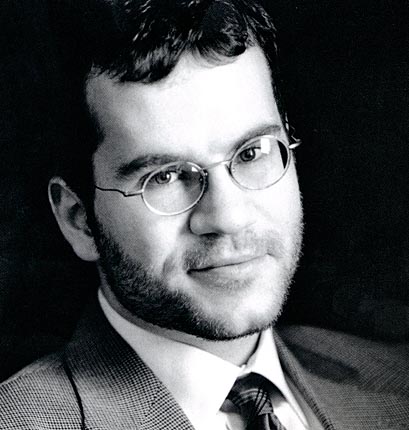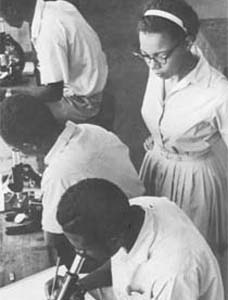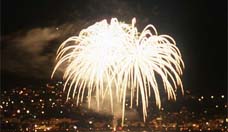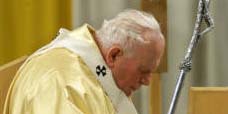
Tom Bissell, who got to know Central Asia as a Peace Corps volunteer in 1996, writes about the region with the type of clarity and intensity that suggests a close attachment
AUTHOR FINDS VOICE IN A DRIFTING CENTRAL ASIA
Alec Appelbaum 4/22/05
A EurasiaNet book review of God Lives in St. Petersburg
Print this article Email this article
Tom Bissell, who got to know Central Asia as a Peace Corps volunteer in 1996, writes about the region with the type of clarity and intensity that suggests a close attachment. The 30-year-old American makes no bones when discussing why heís built a writing career chronicling the overlooked former Soviet republics. "Things you hate," he says, "attract you in some fundamental way."
Bissell was referring mainly to Communism. Yet the characters in his latest collection of short stories -- God Lives in St. Petersburg -- might say something similar about life in Central Asian nations, in particular Kazakhstan and Uzbekistan. Bissell, whose nonfiction volume Chasing the Sea recounts his travels around the dying Aral Sea, sees the regionís stunted democracies as defining mysteries. Reflecting the authorís concerns with flimsy, but constricting national identity, his stories depict travelers losing their grip on self-definition in Central Asia. And losing it slowly, painfully and without grace. The stories, in effect, reflect the damage done to society by the Soviet system.
Central Asia serves as the backdrop for many of the stories in the collection. A scientist studying the vanishing Aral Sea finds herself "disappeared" by a despairing Uzbek. A man eager to be callow toward his wife finds himself cuckolded in a remote Kazakhstani mountainous area. In the joyless title story, a missionary has to hide his role disguises himself as an English teacher. Eventually, rather than carrying on with his efforts to win converts, he actually becomes an English teacher and then slides into depravity. In "Death Defier," a superficially glib American called Donk withers under an Afghan warlordís manipulation. Bissellís roving narrative eye moves from character to landscape to another character. The stories induce laughs and discomfort as characters fail in crucial moments to appreciate how pitiless their surroundings are.
This failure does not infect the author. Bissell, during his teaching days in Uzbekistan, found the region to be fascinating and misunderstood. Like many anti-communists, Bissell still marvels at how the Soviet Union imploded so suddenly after being so feared for last half of the 20th century. "I was walking home once from teaching in Gulistan," he recalls. "Thereís a dude walking a cow, and an irrigation ditch, a guy butchering a cow. And I stopped and thought: this is what we were afraid of?"
Bissellís characters endure similar shocks -- with weaker humor and sparser intellectual honesty. From the husband jealously eyeing Kazakhstani mountain guides to the tortured missionary yielding to a daughterís joyless prostitution, they confront the unknown and come away with less dignity. The writing, though, uses precise description and brisk pacing to keep the stories believable.
This control of mood reflects how the Central Asian setting, more than interpersonal drama or political agenda, spurred the author. His experience in Central Asia during the late 1990s, more than his narrative instincts, defined the voice that helps him succeed in the collection. "Most people who like to write about this stuff tend to be hairy-chested he-men," he says. "I feel like a writer whoís supposed to be writing sensitive domestic stories about fathers and sons."
Bissellís spirit, as a storyteller and a sojourner, seems generous rather than jaded. "Iím not a travel bully at all," he says of his attitude toward Western tourism. He recoiled at American presumptuousness -- he laughs, remembering an encounter with an American woman who expressed surprise that Tashkent contained a church. But he gets inside each characterís head with specific rhythm and perspective.
In writing his first (published) book of fiction, Bissell says, he drew on some memories or impressions from his own travels. But he makes no effort to present the book as reportage: a disclaimer at the end admits to historical liberties. He canít trace how Central Asiaís various languages influenced his charactersí voices, in part because the stories look at the region through indignant and incurably Western eyes. "I like to write about Americans," he says, "in situations where their Americanness is beside the point." And his hope for a new birthright in these nations makes the stories dwell on loss and sorrow. They never take refuge in the fish-out-of-water joke.
Hope? Bissell harbors plenty for the region, but he knows that the critical ingredient -- "extraordinary leadership"- has not yet emerged. Commenting about Kyrgyzstanís recent revolution, Bissell said he exulted when former Kyrygzstani president Askar Akayev fled the country. But, he stressed, Kyrgyzstanís hardest days lay ahead. "The fact that the Soviet system spawned nothing but selfishness and disdain is a tragedy," he says. "Itís hard to think about how that gets untied."
Bissell started by aiming to pierce the veil of propaganda. He found his voice untangling the shame, confusion and desperation of citizenship in a region making a difficult transition, burdened with a terrible legacy. Like his characters, he knows that Central Asian visitors -- and communities and histories -- cannot experience the unknown without scars.
Editorís Note: Alec Appelbaum is a freelance journalist based in New York.
Posted April 22, 2005 © Eurasianet










